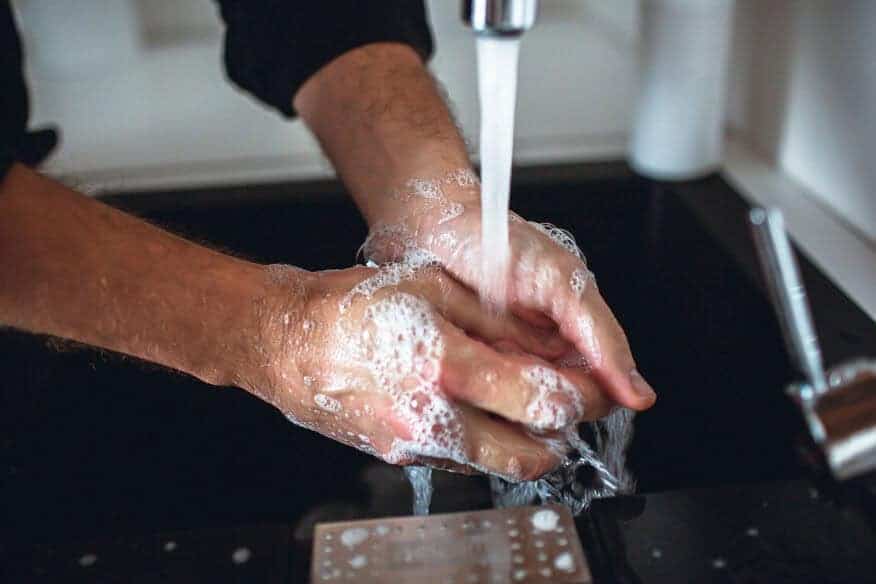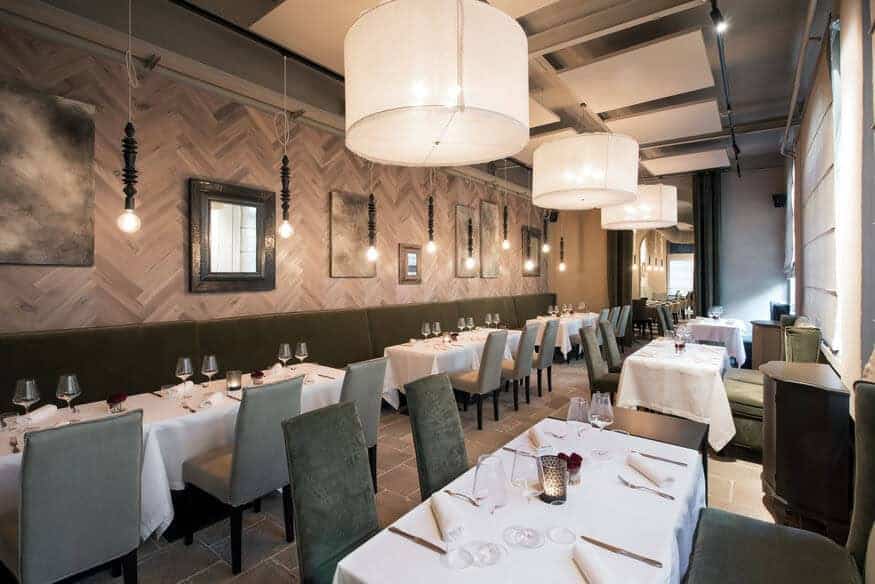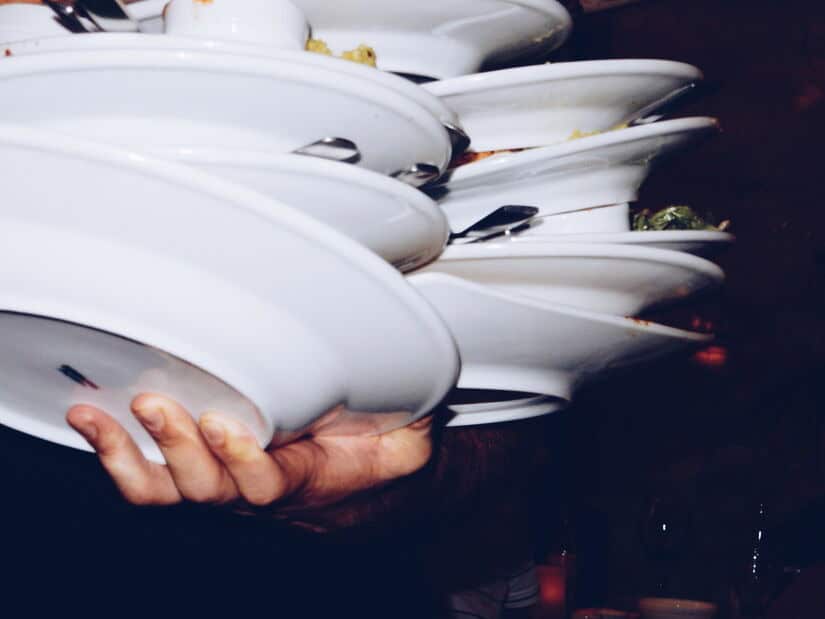If a commercial water heater fails in the middle of a shift, it’s not just an “inconvenience”—it can be a full-blown crisis. Restaurants require hot water for all operations, from food preparation to dishwashing to employee hygiene. It doesn’t matter if you’re running a small café or a high-volume kitchen, a water heater shutdown can shut you down. That’s why it’s critical to have a response plan before the worst occurs.
Why Hot Water Matters in Restaurants
If you own a restaurant, you already know that hot water is crucial for much of what goes on in the kitchen and dining area.
Hot water is essential for food safety and health code compliance. You need hot water for sanitation, dishwashing, surface cleaning, handwashing, and more. Your employee and customer hygiene depends on access to hot water, and that’s why it’s a must-have in order for your restaurant to remain open and compliant with health regulations.
Fortunately, most commercial water heaters are up for the job. With the right care, you’ll minimize the chances of a restaurant shutdown and water crisis. The important part is preparation. You need clear SOPs (standard operating procedures), so you know exactly what to do when and if your restaurant water heater fails.

Know the Signs Your Water Heater is Failing
One of the best ways to head off restaurant water heater failure is to familiarize yourself with the early signs that your commercial water heater is having trouble. Should you notice any of these issues, reach out to your repair technician right away.
At Reliable Water Services, we respond to calls 24/7. If you suspect there’s a chance your water heater is having a problem, reach out BEFORE it fails entirely. This will help us troubleshoot the problem and keep your restaurant out of full crisis mode during a busy service time.
So, what are some signs of commercial water heater failure?
- Sudden loss of hot water or inconsistent water temperatures
- Strange noises like banging, popping, or whistling
- Leaks and water pooling up near your commercial heating unit
- Leaking near the pressure relief valve
- Smelly water—often a rotten egg odor
- Discolored water—rusty, brown, or anything that’s not clean and clear
- Error codes and flashing lights on the digital display (if you have a digital model)
- Pressure changes that impact the faucets and sprayer functions
- Signs of improper installation or obviously aged equipment
Not every sign above means your water heater is about to fail, but they’re definitely noteworthy. Call your technician if you notice anything unusual. It’s far better to be cautious in the situation than to put it off and face a major issue down the road.
Could your commercial water heater explode? Not likely. While very rare, especially with newer commercial water heater options, explosions are possible with severe water heater malfunctions. The more likely scenario is that your water heater will just stop functioning. However, it’s worth noting that you should never tamper with your commercial water heater or try a DIY fix.
Commercial water heater equipment, like many other pieces of restaurant equipment, should be handled by professionals. There are many ways slight alterations can cause your water heater to be less efficient and eventually break down. While you probably don’t have to worry about the dangers of an explosion, a lack of hot water will shut down your restaurant service and cause a very costly problem.
Common Causes of Restaurant Water Heater Failure
So why do commercial water heaters break down? As with any modern commercial equipment, performance is optimized, but there are also many ways things can go wrong. Understanding some of the common causes of restaurant water heater failure can help you best navigate the next steps if something goes awry.
Sediment buildup in the tank is caused by minerals like calcium and magnesium that are naturally found in hard water. These minerals settle at the bottom of the tank over time. Constant heating causes the minerals to separate from the water faster and, over time, form a hard layer of scale or sludge. In a commercial water heater, usage is high, and the heater runs frequently, accelerating the process. If you have hard water, scheduling regular maintenance is essential to avoid blocking the heating elements.
Besides mineral buildup, thermostats and heating elements can also fail due to age and electrical issues. As the water heater ages, heating elements get strained, experience buildup, corrode, and may eventually burn out. Faulty wiring, power surges, and moisture intrusion can exacerbate the issue and even cause immediate failure.
A tripped circuit breaker or an extinguished pilot light can also suddenly cause your water heater to stop working. Even though these may seem like simple issues, they’re often indicators of a deeper problem. A tripped breaker can point to an electric overload or a short caused by a faulty heating element, wiring issue, or a power surge. A draft can take out the pilot light on a standard gas water heater, but it could also indicate a dirty thermocouple or a gas supply issue.
Attempting DIY repairs on your commercial system may be tempting, especially if you’re in the weeds, but it can lead to bigger safety hazards, code violations, and further damage. It’s always best to contact a licensed technician to fix the immediate issue and check for underlying causes.
There are many other causes of water heater problems, including a closed or broken gas valve, a broken dip tube, a corroded anode rod, frozen pipes in cold weather, and just general wear and tear due to old age. One of the top considerations is unit size. If your commercial water heater is undersized, it may not be able to keep up with excessive water demands, leading to faster failure. For this reason, you should make sure that your water heater is sized correctly by your technician, who can advise you on the right option to suit your needs.
A few resources to review include:
- Water Heater Not Working?
- Does My Restaurant Need a Booster Heater?
- Protect Your Water Heater in Winter

How to Troubleshoot Common Water Heater Problems
You’re in the service industry. You’re used to being scrappy, pulling on your boots, rolling up your sleeves, and troubleshooting problems. It’s that independent spirit that makes the restaurant industry thrive.
So naturally, when you face a commercial water heater issue, your first instinct will be to investigate and try to fix it. While there’s nothing wrong with investigating the problem, be sure to call Reliable Water Services before you pick up a wrench. Most commercial water heater issues must be addressed by a professional.
You don’t need to worry if you have a service plan or coverage with Reliable Water Services. Our technicians respond quickly, taking care of the problem as fast as possible. We know you’re relying on hot water for your business, and we’ll do what it takes to get you back up and running ASAP.
Here are a few common commercial water heater issues you can identify when you call us:
No Hot Water
Suddenly, the water from your taps is cool or even icy cold. If it happens quickly or right at the beginning of a shift (after you’ve been away from the kitchen for a few hours), it could indicate that a breaker was tripped or the pilot light has gone out. It could also indicate that the heating element inside your water heater unit has failed.
Water Isn’t Hot Enough
Sometimes, the water is still hot, but it’s not hot enough to be at the proper sanitization temperature. To meet health code requirements, your kitchen’s water must be at least 120°F. Sanitization without chemicals requires dish surface temperatures between 140°F and 160°F to kill bacteria. High-temperature dishwashers (which may need a booster) must hit 180°F during their cycle to ensure the dishes within reach proper sanitizing temps. If the temperature’s too low, you’re risking the health and safety of customers and staff. You may simply need to adjust the thermostat, but it’s important to note that sediment can also be the cause of waning heat. It’s best to call a technician to look at the problem.
Leaking Water Heater
A leaking water heater isn’t a problem to ignore. It may indicate a loose valve, pipe damage, or even a cracked tank. If you notice a sudden leak, treat it as an urgent issue. Any cause of a leak can lead to major water damage and a complete hot water system failure. Your first step is to turn off the power or gas supply to the unit and shut off the water inlet valve (if possible). Then call a professional immediately!
Strange Noises
If you hear your water heater making some strange noises, like rumbling or popping, it can indicate that there’s sediment buildup in the tank. When the heating element warms up the water, air bubbles beneath the sediment make loud popping noises. Hissing or sizzling noises in electric water heaters can also indicate scale buildup. Meanwhile, a ringing or squealing sound indicates a dying blower motor and is a definite sign of an imminent water heater breakdown in your near future, so this part should be replaced before it fully fails. If you hear these strange noises, it’s time to call a professional to check things out.
Rusty or Foul-Smelling Water
For a restaurant, brown, smelly water is pretty tough to ignore. If your water seems anything other than odorless and clear, it’s very important to have it checked out—not only for your peace of mind but for your reputation. Customers will certainly notice water that stands out (in a bad way). If you notice anything strange looking or smelling with your water, get it checked out immediately.

Emergency Stop-Gaps to Minimize Downtime
So you’re running a busy shift and the worst happens—your hot water heater starts to act up or even starts to fail. What do you do?
If you’re located in Indiana or Wisconsin, the first thing to do is contact Reliable Water Services right away. We have a 24/7 response team that will get to you and help you resolve the issue. After you call, there are a few measures you can take to keep things running smoothly during the shift. It’s best to keep a procedure checklist on hand for staff in case of your absence.
Before help arrives:
- Check the power and gas supply—flip the breakers and verify gas flow.
- Check the thermostat settings.
- Shut off the water heater if there is a leak or if it is overheating.
- Reroute limited hot water to critical areas and tasks like handwashing and dishwashing. Use sanitizer if needed.
- If there is a gas smell, ventilate & exit rooms. Then call your gas company immediately so they can locate and isolate the source of the odor, and provide further instructions based on what they find.
Once the technician arrives, you can decide if the problem is concerning enough to shut down or if you can continue to run while the water heater repair person does their job.
If service can go on, you might need to simplify the menu, prioritize sanitation stations, and temporarily switch to disposable serviceware. Guest communication is critical in these situations. Be honest with your guests, reassure them about food safety, and explain what has happened.
At Reliable Water Services, we specialize in fast, professional commercial water heater support. Rely on us for 24/7 emergency services, preventative maintenance, and replacements or upgrades to your equipment.
A hot water emergency is an urgent matter. Contact us immediately to ensure your kitchen stays safe and sound with minimal disruption.